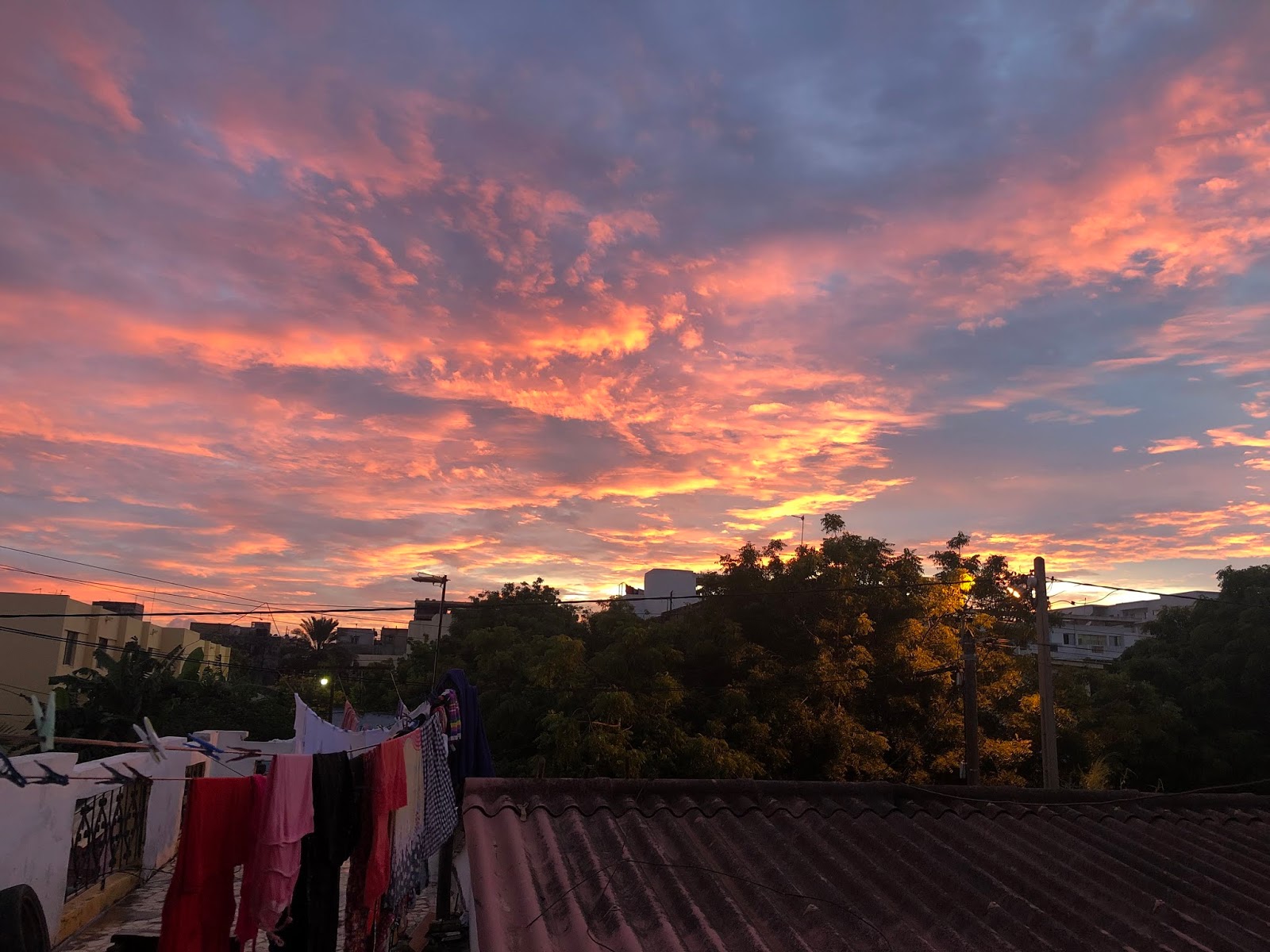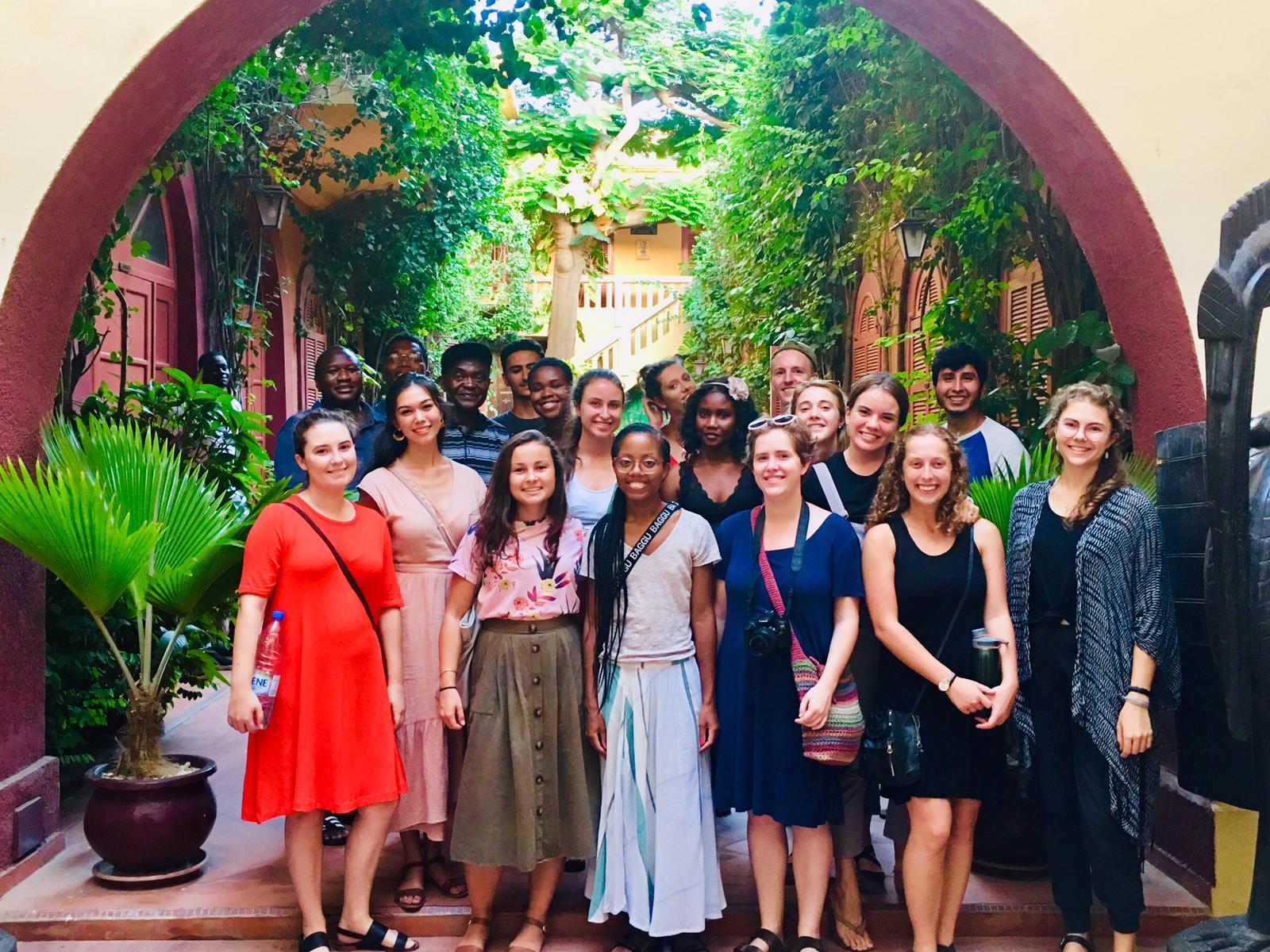Race, Wealth, and American-ness: On Being a Foreigner
noun
a foreigner; a person who has white or light skin
-informal a person not belonging to Senegal (AKA me), often heard when passing by Senegalese people on the streets
ORIGIN
Wolof
Here, I'm Djana (Diana is hard for the Senegalese to pronounce), I'm Mis (what I thought was my Senegalese name, given to me by my host mom, but which I recently discovered just means “beautiful girl"), and I'm forever toubab. Being in the states for so long, I forgot what it was like to be a foreigner, to stand out so much. To not understand any conversations you may overhear. In many ways, I was lucky in France (where most people thought I was French until they heard my broken French) and Morocco (where a decent portion of the people were convinced I was Moroccan). Being a foreigner means certain stereotypes and the absence of belonging, but it also means many privileges.
One of the first things that surprised and confused me my first week here were the sheer number of taxis honking at me while I was walking. Although it’s now faded into background noise, it’s safe to say every walk (however brief) results in dozens of taxi’s honking and slowing down as they go by. A language partner shed some light on the phenomenon: “It’s because they think toubabs are lazy; they never want to walk.” While briefly offended by this, I thought of who represented the general toubab population in Dakar: wealthy expats. In other words, people who either have their own cars or take taxis everywhere. Being in Dakar, I am constantly reminded that this is a very different city for us, students who live with host families, than for members of the expat community who – for the most part – spend their days in guarded villas and their nights in the lively (and wealthy) Almadies neighborhood. (Of course, that isn’t to say I don’t occasionally enjoy a good coffee shop or beachside bar in Almadies.)
"How could the U.S. be so wealthy, but still have poor people?"
Being a foreigner means assumptions about your individual wealth and the wealth of your home country. All Americans have cars, all Americans live in towering skyscrapers, all Americans have iPhones, all Americans take clean, timely public transit that quickly transports them to where they have to be. The latter was one of the first things I had to insist was not true with a language partner –– in fact, public transport in the U.S. is some of the worst amongst developed countries. Similarly, my 7-year-old host sister once insisted to me that Senegal is “the dirtiest country in the world,” refusing to believe me when I assured her that was not true. A few days ago, my 12-year-old host sister asked me how could the U.S. be so wealthy, but still have poor people?
I don’t know how to answer most of these questions. It’s hard to explain how a place that in sum seems to have so much also has rampant inequality. One professor insisted that there is no discrimination against members of the LGBTQ+ community in the U.S. because “Il y a la liberté là-bas!” (There’s freedom there), followed up by “then why did Obama come to Senegal and tell us we had to improve our problem with anti-gay discrimination?” There’s a sentiment that the U.S., as one of the superpowers must be better across the board; that no-one suffers in education or lack of healthcare access. And I, as someone who does come from a privileged upper-middle class background, only add to this image of Americans. Watching the Marvel film Venom a few nights ago with my host family, I was excited to see San Francisco, a city I consider close to home, flash across the screen. I squealed “C’est ma ville!” (That’s my city), only to be met by looks of shock and awe from the kids in my family. “You live there?” "You were born there?” Glancing back at the shiny skyscrapers of FiDi jetting into the skyline, the Golden Gate Bridge’s rust-colored red shining through the fog, I caught myself seeing it from their eyes for the first time. This is where Diana’s from. This is her home. Of course, she’s fabulously wealthy. Of course, she must have everything she wants. Of course, all Americans must.
 |
| A typical meal at a restaurant that caters to expats |
There are two parallel economic, social, and physical communities here: one of expats and wealthy Senegalese, and one of everyone else. They live side-by-side, but rarely intersect. The privilege of being a toubab is getting a pass for wearing slightly more “scandalous” things than Senegalese people would, people recognizing you often and immediately, being automatically spoken to in French (a language with which we’re all familiar) rather than Wolof, and having an automatic “in” amongst the wealthy, expat community. The expat community runs in its own circles so much so that it’s not shocking to run into an expat you just met at an English-speaking movie night a few days later at a western-style café (something that happened to me just this week). This “in” means you can easily pass your days in little America’s or little France’s, surrounded by diplomats, international businessmen, and artists reminiscent of Paris’ post-WWI “les années folles” who came to Senegal for the laissez-faire life of art, sun, and sea. Many of these expats are so foreign to the Senegal of locals that they are able to live here for years without learning any Wolof (the native language of the majority of people in Dakar) –– and sometimes even French.
"We're one foot in, one foot out."
So where do we fit in in all of this? We live with host families in Senegalese neighborhoods, but we also spend time at coffee shops and restaurants geared almost exclusively toward expats. We’re one foot in, one foot out. Toubab refers to anyone with light skin, effectively grouping me and other light-skinned people of color on our program in with “white.” Meanwhile, the black students on are program are sometimes spoken to first in Wolof, and have occasionally even been met with surprise when people hear they’re American. Being a non-black person of color here means the erasure of my ethnic and racial identity –– but with that erasure comes an abundance of privilege. When asked about my own ethnic background, I say that my mother is Chinese but she was born in Vietnam. Before I can even finish, someone jumps in with my other half: “And your father is American.” No, they’re both American, I want to say.
While being American is associated with wealth, it is also associated with whiteness. Here, to be American is to be rich, white, and Christian. And when you fit the bill, you receive the accompanying privileges.
Welcome to Dakar. But which Dakar are you living in?





Comments
Post a Comment